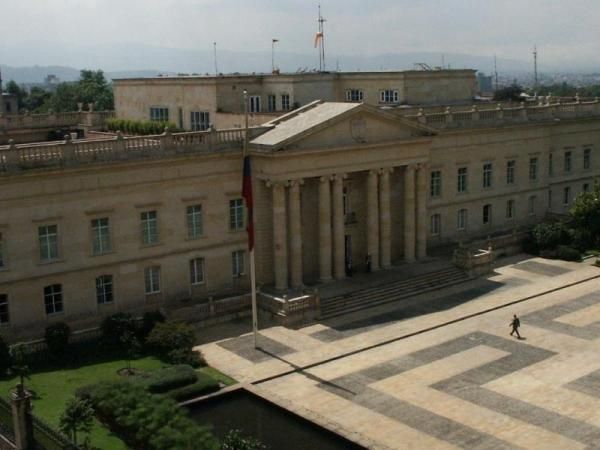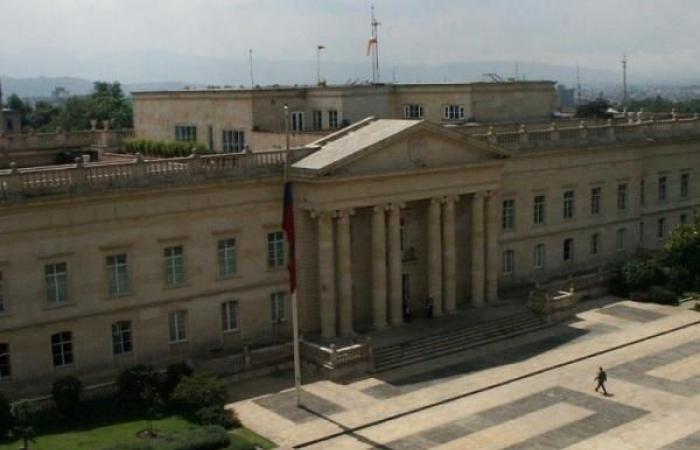With a demand for respect for the fiscal rule and a boost to prevent the country from falling into default due to lack of capital, the Congress of the Republic approved in joint plenaries the project presented by the Ministry of Finance to increase the debt quota by US$17.6 billion.
The urgency of this initiative was that Colombia must pay US$5.5 billion in debt this year, US$8 billion in 2025 and US$7 billion in 2026; making it clear that these requirements exceed the current availability of cash, which barely reaches US$2,000 million and justifies the need to expand the quota.
On the House of Representatives side, the votes were 116 in favor and 11 against, while in the Senate the votes were 53 in favor and 9 against. With these guarantees, all that remains is presidential sanction and official issuance of the regulations for said increase, while warning that this will not put the country further into debt.
(For reading: Dane unions launch alert for reliability of the Economic Census)
The Minister of Finance, Ricardo Bonilla, was emphatic in that this proposal was necessary to give play to the Nation’s finances, since cash accounts are feeling the effects of the slowdown and fall in tax collection, in addition to the commitments that were acquired during the pandemic.
“We are paying the debt and the debt will continue to be paid, we are honoring national and international commitments and the message I am going to leave you is that you clearly left us the resources to be able to comply with the IMF debt, of which we have already paid two installments, we will pay two other installments at the end of the year,” said Bonilla González.
(More news: Dane Economic Census entanglements would go against at least two national norms)
This official added that with the endorsement of Congress, Colombia moves away from the specter of default, since it will be able to refinance the debts and move towards meeting the goal they set. which focuses on reducing debt levels over the next few years.
Ricardo Bonilla, Minister of Finance and Public Credit.
Courtesy – Minhacienda
“With the expansion of the quota we will no longer have restrictions on the location of resources, we will pay four installments in 2025, they will be completed and we are including here the $12,000 million that the Government acquired in 2020, with emergency decrees that were not in the debt quota,” added the Minhacienda.
(Read here: What is known about the contract that Radamel Falcao García will have with Millonarios)
On the other hand, regarding how exactly the US$17.6 billion that was approved as a quota expansion by Congress will be used, at the time the Ministry of Finance explained that US$5,500 would be used in 2024, while in 2025 it would be raised to US $8.8 billion and in 2026, ending in August, the projection points to US$4.038 million.
Colombian public debt
istock
Congress calls for responsibility
After the approval that was given in the Senate and Housewhere even the Opposition’s proposals to put limits on this quota were denied, the congressmen called on the National Government to manage well this vote of confidence that is being given and guarantee that the increase in quota will be used to manage well the country’s debt.
(Also read: Ultimatum to the Government to appoint Creg commissioners: how much time do you have?)
One of these was Senator Juan Pablo Gallo, who highlighted that the critical moment that the local economy is going through cannot be ignored, in which an intelligent reduction in spending will be essential to clean up finances and aim for a gradual recovery, in which even strengthens investment.
“While it is true that the debt quota project is presented routinely, that each government does it, it is also true that we are going through a very complicated moment in fiscal matters, a moment that requires special conditions. That’s why we passed a proposition where we asked that these resources were dedicated exclusively to paying the debt,” said Gallo.
(More information: Is water rationing in Bogotá close to ending? This has been said by the District)
This congressman added that “let us remember that for the first time and after 2020, the fiscal deficit is increasing and already in the medium-term fiscal framework it is proposed for a value of 5.6%, so it was important to approve this proposal that will finally denied the Senate, but that we and I as a member of the Interparliamentary Commission on Public Credit will be very attentive to how these resources are going to be implemented.”

Narino Palace.
EL TIEMPO Archive
Meanwhile, for representative David Racero, In addition to supporting the Government, this approval also sends a message of confidence and certainty to international markets, to which it is reiterated that the country will comply with its commitments, which will be well viewed by the rating agencies. risk.
(You may be interested: Imports to Colombia increased 18.1% during April)
“Approved the expansion of the nation’s external debt quota to comply with the commitments, as well as clearly stating the total external debt, including the credits acquired in the Duque Government that were not counted as such, but that today Colombia must pay it,” he indicated.

Gustavo Petro
Sergio Acero Yate / Portfolio
The Ministry of Finance assured that after this it will continue with the payment plan of the Flexible Credit Line (LCF) of the Monetary Fund International (IMF), as well as all other external public debt service obligations.
(For you: They demand the election of Leopoldo Múnera as rector of the National University)
On this issue, we must not lose sight of the fact that after the process that has just taken place in Congress, the Government projects that these adjustments in the management of the country’s debts are intended to provide economic benefits for the next three years and that later , towards 2028, it would be necessary to review how this debt quota is increased again.
In previous explanations from the Minister of Finance“the next government is going to have to raise the issue of the quota again, because in 2020 commitments were made with international organizations and commitments for bonds that will begin to mature in 2028.”
Likewise, they have been clear in saying that “more words, less words. The Government has to fulfill its debt payment commitments and as this is done, the size of the Colombian debt is reducing.”





